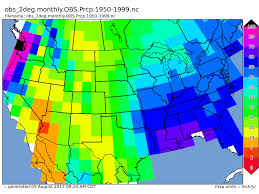Climatology is the study of long-term weather patterns and climate on the earth and other planets. The Climatologist is an expert on the physical processes that determine the climate of the atmosphere. He is highly knowledgeable about global changes that can affect the climate, such as ocean currents, changes in the planetary orbit, variations in solar output, increases in greenhouse gases, and volcanic eruptions. He studies records of past climates, including temperature and precipitation changes, to make predictions about near-term weather patterns. He can also estimate the effect of human activities on climates.
Branches of Climatology
- Physical climatology
- Dynamic climatology
- Synoptic climatology
- Regional climatology
- Applied climatology
What do Climatologists do?
- Predicting long and short-scale patterns by analyzing and interpreting records, maps, papers, photos, and charts.
- Predicting patterns via computer models
- Creating reports and briefings for clients in the manufacturing, commercial, and government sectors
- Data from weather stations, balloons, or radar stations is collected and distributed to the public.
- Making science presentations and preparing for them
- Applying knowledge to issues like global warming, agriculture, and natural disasters
- Researching the processes that trigger weather events
- Analyzing past climate data to aid in forecasting future developments
- Dealing with requests for information and interviews from the media
Scope of climatology
Climatologists are in a rare position to make a positive impact on the atmosphere by collaborating with industry to reduce their environmental impact and working within a given area's environmental limits to increase savings and benefit while minimising environmental impact. Climatologists may serve in government, public or private organisations, and charities, as well as academic and scientific institutions. Acting as a consultant for engineering and environmental consultancy companies is another choice for climatologists.
How to become a climatologist
Due to less awareness of the climatology program, there are few educational institutes which are providing the services of this program study. You can learn this subject on masters, PHD or even bachelor level studies by enrolling in related fields as well such as atmosphere sciences or meteorology. It is high with its scope on both national and international level. In order to be a part of this program, you need to score 50% at the intermediate level.
For more details on programs offered by institutes in Pakistan, visit https://www.eduvision.edu.pk/programs-offered-in-earth-environmental-sciences-at-bachelor-level-in-pakistan
Job opportunities
Some of the main areas of employment in the field of climatology are as follows:
- Geological departments of government
- Minerals exploration companies
- Meteorological departments
- Environmental adviser
- University centres
- Research institutes
- Housing department
- Construction companies
- Cartographer
- Climate expert
- Information scientist
Qualities required
- Research loving nature
- Creative
- Analytical mindset
- Strong verbal and written communication skills
- Teamwork
- Working outside or in the field for long hours
- Calm nature
Views: 6140






